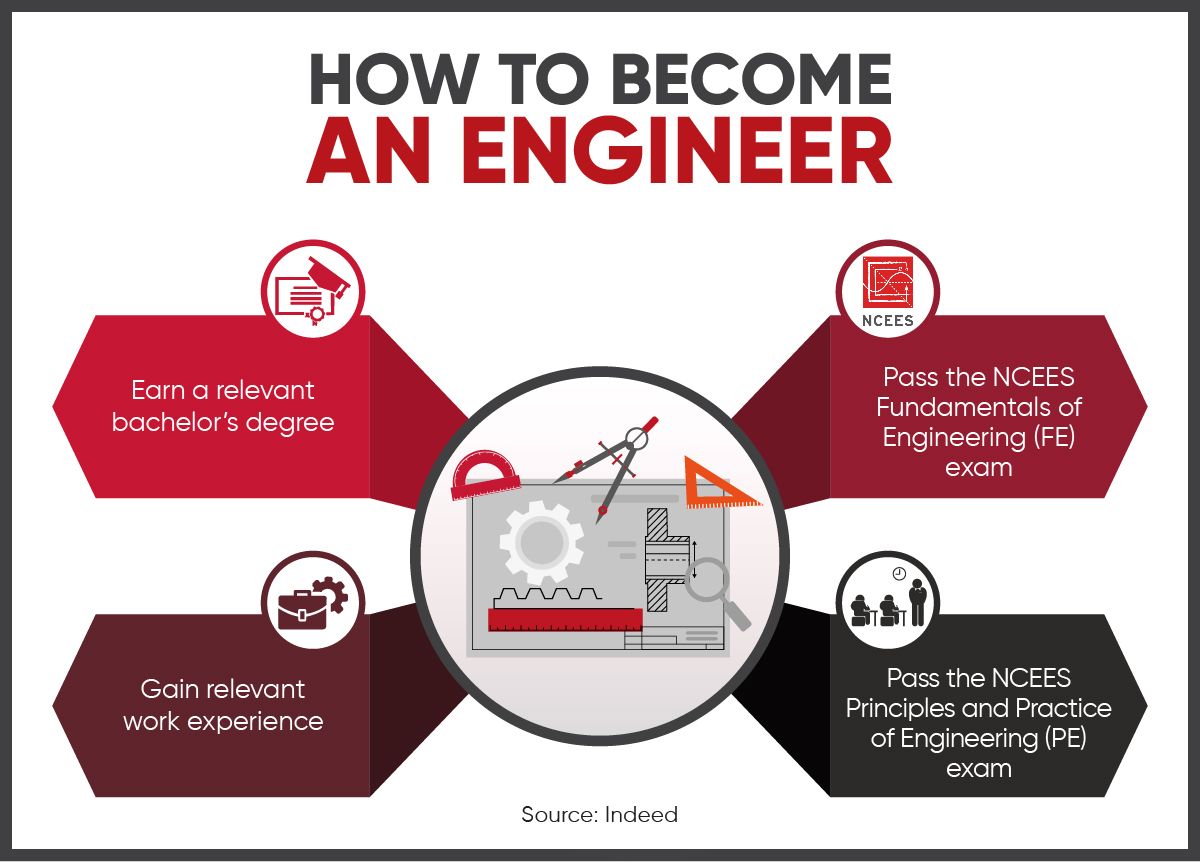What is a Simple Definition of Engineering?
At its core, engineering is the application of scientific principles to design and build practical solutions for real-world problems. Engineers are the architects of the future, utilizing their expertise to create and innovate across a wide range of industries and disciplines. They apply their knowledge of math, science, and technology to find solutions, make things work efficiently, and improve the world around us.
What Exactly Does an Engineer Do?
Engineers are problem solvers, and their work is incredibly diverse. Here are some key aspects of what an engineer does:
Engineers create blueprints, plans, and models for new products, systems, and structures. Whether it's designing a new skyscraper, developing a cutting-edge smartphone, or designing efficient transportation systems, engineers are behind the scenes shaping the world around us.
Engineers conduct extensive testing, simulations, and analysis to ensure the safety, functionality, and performance of their designs. This rigorous testing phase is essential to catch and address potential issues before they become real-world problems.
Engineers are always seeking new ways to improve existing technologies and processes. They innovate by developing new materials, improving energy efficiency, and finding creative solutions to complex challenges.
Many engineers take on managerial roles, overseeing projects from inception to completion. They coordinate teams, budgets, and timelines to ensure projects run smoothly and efficiently.
Engineers tackle a wide range of challenges, from addressing environmental concerns to improving healthcare technology. They apply critical thinking, creativity, and scientific knowledge to solve these problems.
Types of Engineering
Engineering is a broad field with various specializations, each focusing on specific aspects of technology and problem-solving.
Here are some of the main types of engineering:
1. Civil Engineering:
Civil engineers design and oversee the construction of infrastructure like bridges, roads, buildings, and water supply systems. They play a critical role in shaping the physical environment.
2. Mechanical Engineering:
Mechanical engineers work with machines, tools, and systems. They design everything from engines to consumer products, ensuring they function efficiently and safely.
3. Electrical Engineering:
Electrical engineers deal with electrical systems, including power generation, communication, and electronics. They create and maintain the technology that powers our modern world.
4. Chemical Engineering:
Chemical engineers focus on the design and operation of processes for producing chemicals, fuels, and materials. They play a significant role in various industries, including pharmaceuticals and petrochemicals.
5. Aerospace Engineering:
Aerospace engineers work on aircraft and spacecraft design and development. They contribute to advancements in aviation and space exploration.
6. Biomedical Engineering:
Biomedical engineers apply engineering principles to the field of medicine. They develop medical devices, diagnostic tools, and work on improving healthcare technology.
7. Environmental Engineering:
Environmental engineers address environmental challenges, such as pollution control and resource conservation. They strive to create a more sustainable and cleaner world.
8. Computer Engineering:
Computer engineers work with computer hardware and software, developing cutting-edge technology and improving the performance of computer systems.

How Do I Become an Engineer?
Becoming an engineer requires a combination of education, skills, and personal qualities.
Here are the typical steps to become an engineer:
1. Educational Requirements:
- A bachelor's degree in engineering or a related field is the minimum requirement. Some engineering roles may require a master's or even a Ph.D.
2. Gain Relevant Skills:
- Develop strong analytical, problem-solving, and critical-thinking skills. Proficiency in mathematics and science is essential.
3. Select a Specialization:
- Choose a field of engineering that aligns with your interests and career goals.
4. Internships and Co-op Programs:
- Gain practical experience through internships and co-op programs. This hands-on experience is invaluable.
5. Licensure:
- Depending on your location and specialization, you may need to obtain a professional engineering license. This typically involves passing an exam and gaining practical experience.
6. Continuing Education:
- Stay updated with the latest advancements in your field through continuing education and professional development.
Great Reasons to Be an Engineer
Becoming an engineer offers a multitude of rewarding benefits, making it an attractive career choice. Here are some compelling reasons to pursue a career in engineering:
- Innovation: Engineers are at the forefront of innovation, developing cutting-edge technology and pushing the boundaries of what's possible.
- Solving Real-World Problems: Engineers have the satisfaction of knowing their work directly contributes to solving critical global issues, from climate change to healthcare advancements.
- Job Stability: Engineering careers often offer high job security, as technological advancements continually create demand for skilled engineers.
- Lucrative Salaries: Many engineering positions come with competitive salaries, making it a financially rewarding field.
- Diverse Career Opportunities: Engineering provides a wide range of career options, allowing you to find a niche that matches your interests and passions.
- Global Impact: Engineers have the opportunity to work on projects that impact the world on a large scale, from designing eco-friendly buildings to developing clean energy solutions.
- Continuous Learning: Engineering is a field that continually evolves, ensuring that engineers are always learning and adapting to new challenges.
In conclusion, engineering is a dynamic and essential field that offers a wide array of opportunities for those with a passion for problem-solving and innovation. Whether you're interested in designing new technologies, building infrastructure, or improving the environment, engineering can be a fulfilling and impactful career choice. By following the educational and skill-building steps outlined, you can embark on a journey to become an engineer and make a positive difference in the world.

Here are some frequently asked questions (FAQs) about engineering:
What is engineering in simple terms?
Engineering is the application of scientific and mathematical principles to create practical solutions for real-world problems. Engineers design, analyze, and build everything from buildings and bridges to cutting-edge technology and environmental solutions.
What do engineers do on a day-to-day basis?
Engineers have diverse responsibilities, which can include designing, testing, analyzing, and overseeing projects. They use their problem-solving skills to improve existing systems and develop new technologies.
How many types of engineering are there, and what are they?
There are numerous types of engineering, each with its own focus. Some major branches include civil engineering, mechanical engineering, electrical engineering, chemical engineering, aerospace engineering, biomedical engineering, environmental engineering, and computer engineering.
What educational requirements are needed to become an engineer?
To become an engineer, you typically need a bachelor's degree in engineering or a related field. Some engineering positions may require a master's or Ph.D., depending on the specialization.
What skills are essential for an engineer?
Engineers should have strong analytical, problem-solving, and critical-thinking skills. Proficiency in mathematics, science, and the ability to work in teams is also crucial.



